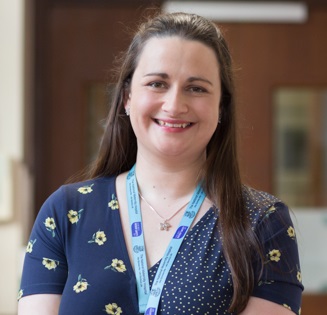Staff caring for bereaved parents have had to adapt quickly so they can continue to support people during one of the most difficult times of their lives, writes Sarah Cullen
Even outside of a global pandemic, the death of a baby during pregnancy or shortly after birth is often a lonely and isolating experience for parents. This isolation has been compounded by covid-19 restrictions. As a bereavement midwife, supporting families after the death of a baby during a pandemic has meant providing the same individualised, compassionate care you always would, while also considering social distancing, visiting restrictions, and other covid-19 guidelines.
Guidance from the Institute of Obstetricians and Gynaecologists advise that bereavement services should continue as much as possible and that care be provided in accordance with the National Standards for Bereavement Care following Pregnancy Loss. With this in mind, bereavement midwives and all healthcare professionals caring for bereaved parents needed to adapt quickly to provide the same high quality care to parents during this time. We needed to step in to make up for services that were no longer available in the hospital or community, provide as much support as we could, but all while realising that we can never replace the much longed for hugs from family members.
Since the pandemic began, life within maternity hospitals has changed considerably. The normal ways we demonstrate our empathy with and support for parents has needed to adapt to social distancing guidelines. Given these guidelines, it is not possible to sit close to parents, hold their hand as they cry for their baby, or give them a hug. Eye contact, body language, and verbal communication skills are now more important than ever.
At first I found that these restrictions added to the already emotionally difficult role of the bereavement midwife. The care that parents receive at the time of their loss has long term consequences for how they grieve, and I worried that it would be more difficult to provide enough support during this crisis. In the early weeks of the pandemic, I felt very anxious at times about my ability to provide the level of care I was used to for bereaved parents during one of the most difficult times of their lives. These feelings were also shared by my colleagues on the bereavement team, and so we came together to quickly identify obstacles and work to improve the experience for bereaved parents.
While the imposed restrictions affected many services, one that was of particular significance for our team was that professional photographers could no longer attend the hospital. Our bereavement midwives are profoundly aware of the importance of memory making after the death of a baby and high quality photographs are an important part of this. This led me to develop my photography skills and I quickly learnt basic skills to take, edit, and print photos. This was made possible by the support of a number of charities who provided training and resources to enable this service to develop. If anything, this extension of the bereavement midwife role has strengthened my connection with parents and allowed me to provide more holistic care. I hope that the photography service we now offer is something we can continue into the future.
Going forward, it seems as if covid-19 restrictions will be with us for some time to come and it is important that we continue to provide personalised and compassionate care to bereaved parents. This will mean we need to continue to adapt the service to restrictions so that we can maintain high standards of care while ensuring the safety of parents, visitors, and hospital staff.
When restrictions are lifted, I know that the lessons I have learnt in the past number of months will stay with me. In particular the non-verbal communication skills that I have developed by necessity, including more focused attention on eye contact, listening skills, and body language, will continue to assist me as I support bereaved parents after covid-19.
Covid-19 has been a very difficult time for everyone. The experience of working with bereaved parents during a global pandemic has been challenging and at times stressful, but it has also provided us with a number of valuable learning opportunities and has helped to bring some positive changes to the bereavement service in my organisation.
On a personal note, I feel a much deeper connection with bereaved parents—a bond that I know will help sustain me as we move forward into an uncertain future.
 Sarah Cullen is a clinical midwife specialist in bereavement in the National Maternity Hospital in Dublin. Twitter @sarahcullen110
Sarah Cullen is a clinical midwife specialist in bereavement in the National Maternity Hospital in Dublin. Twitter @sarahcullen110
Acknowledgments: I would like to express my great appreciation to Barbara Coughlan (UCD School of Nursing, Midwifery and Health Systems) for her encouragement and advice in completing this piece.
Competing interests: None declared
